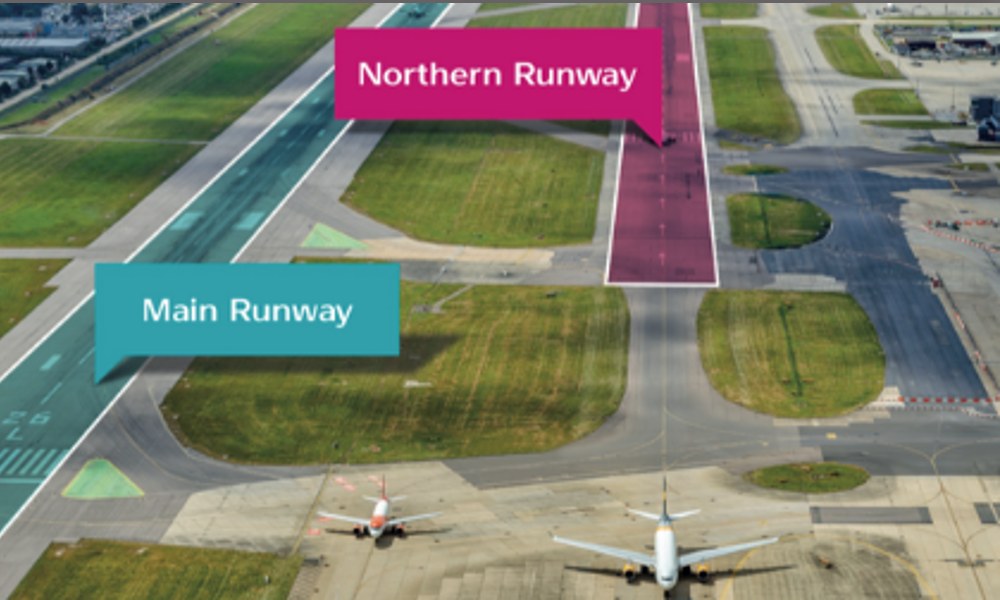
Gatwick's Northern Runway cargo volumes forecast to reach 350,000 tonnes by 2047
The increase in cargo is primarily driven by the expected growth in long-haul connectivity offered by the additional runway, with widebody aircraft to destinations in Asia and the Middle East seen as providing significant growth in cargo in the years ahead.

The volume of cargo handled by Gatwick is predicted to increase to around 350,000 tonnes per year by 2047 that will be up from 150,000 tonnes in 2019/20. This is possible only if the airport’s plan to bring its Northern Runway into routine use is realised.
Cargo volumes would increase to over 200,000 tonnes as the Northern Runway potentially enters service in 2029, growing steadily to over 320,000 tonnes by 2038, before hitting 350,000 by around 2047.
The increase in cargo is primarily driven by the expected growth in long-haul connectivity offered by the additional runway, with widebody aircraft to destinations in Asia and the Middle East seen as providing significant growth in cargo in the years ahead.
Jonathan Pollard, chief commercial officer, Gatwick Airport, said, “If we realise our plans and the Northern Runway is brought into routine use it will bring significant benefits for the local area, including new jobs and opportunities for business. I would encourage anyone who wants to see these benefits delivered to let us know what they think by responding to our public consultation before it closes on the December 1 this year.”
Gatwick’s existing cargo facility occupies an area of approximately 10 hectares, including 23,000m2 of cargo sheds, and will be able to accommodate the increase in cargo that the Northern Runway project is forecast to generate.
Dee Mathieson, managing director, Elekta Ltd – a Crawley-based company that makes medical devices – said, “Around 90 percent of the vital spare parts that go into ensuring the maintenance and repair of our customers’ medical devices is by air transport. It would really help our business by being quicker and more efficient if we were more able to transit these parts through Gatwick, so we would welcome greater capacity and improved facilities for air freight at airport.”
Janette Deakins, sales manager, Transvalair – a Gatwick-based freight-forwarding company – said, “With the Northern Runway increasing freight capacity of Gatwick through the return of more long-haul flights, we can see some real benefits for our clients. Turnaround times will be faster, and we can avoid having to use lorries to transport freight to other airports, which will help deliver environmental benefits.”
Nick Broom, CEO of PVL, which exports products across the world, supplying emergency service vehicle fleets, said, “Whilst our freight handlers will decide the optimum route for our products to reach our clients, we have very little influence over that route. However, we would welcome greater freight capacity at Gatwick as it is our local airport, and anything that can improve transit time and cost will also help the business to reduce our carbon footprint.”

